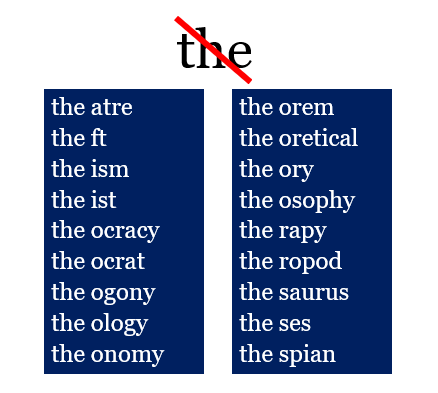The alphabet gives us the possibility to create a limitless number of words.
In any alphabet where the length of a word is not restricted, there are an infinite variety of ways of creating combinations of letters to be words. In practice most languages have working vocabularies of a few hundred thousands and even if all possible variations and forms, past and present, are counted, the vocabulary may be around one million words. The Oxford English Dictionary has around 177,000 words as being in current usage and another 50,000 as obsolete. Similarly German has around 150,000 words as being in current use and Swedish has around 125,000. However current usage is not the whole story. Current usage is only a part of the total number of words available in a language where the total number depends on the age of the language. It is said that Japanese has around 100,000 active words in a total vocabulary of around 500,000. The OED estimates the total number of words in English to be around 750,000. Other estimates put the total English vocabulary at just over one million words.
So there is no need to include the definite article to create a word. The the atre is so unnecessary. Stripping away the initial “the” is required, if nothing else, on the grounds of language parsimony. Words beginning with “therm” are excused as are those where the remnant is an existing word. Excluding derivatives, the list of commonly used words which could happily lose their “the”s is not so long. Pronouncing “ft” might be a challenge.
Removing the indefinite article would not work especially as an initial “a” is so often used to create the opposite of a word or a negation.
Tags: Words
